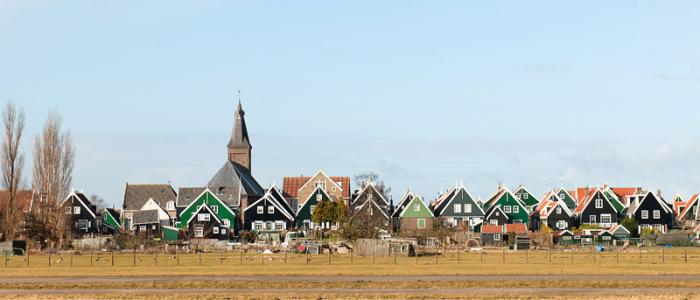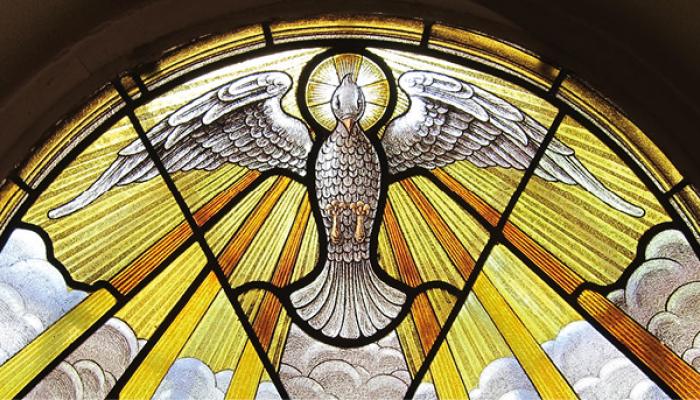
2.11 Cila është Zanafilla e Kishës? Si ka filluar gjithçka?
Jezusi i mblodhi Apostujt e parë dhe kështu themeloi Kishën. Papa dhe ipeshkvinjtë tanë aktualë janë pasardhësit e Apostujve. Që nga fillimi, Apostujt iu jepnin detyra Ipeshkvinjëve. Kisha përbëhet nga ipeshkvinjtë së bashku me të gjithë besimtarët e tjerë.
Në bashkësinë e krishterë ne mësojmë të jetojmë dhe të lutemi së bashku [>3.1]. Në këtë mënyrë ne përgatitemi të jetojmë së bashku me Zotin në parajsë. Duke bashkëndarë Ungjillin[>4.49], të tjerëve ju jepet mundësia t’i bashkohen këtij komuniteti, duke u afruar kështu më shumë me Zotin.
What does “Church” mean?
The Greek word for Church is “ekklesia” = those who are called forth. All of us who are baptized and believe in God are called forth by the Lord. Together we are the Church. Christ is, as Paul says, the Head of the Church. We are his body.
When we receive the sacraments and hear God’s Word, Christ is in us and we are in him—that is the Church. The intimate communion of life with Jesus that is shared personally by all the baptized is described in Sacred Scripture by a wealth of images: here it speaks about the People of God and in another passage about the Bride of Christ; now the Church is called Mother, and again she is God’s family, or she is compared with a wedding feast. Never is the Church a mere institution, never just the “official Church” that we could do without. We will be upset by the mistakes and defects in the Church, but we can never distance ourselves from her, because God has made an irrevocable decision to love her and does not forsake her despite all the sins of her members. The Church is God’s presence among us men. That is why we must love her. [Youcat 121]
Cila është zanafilla dhe plotësimi i Kishës?
Kisha e ka zanafillën dhe plotësimin në planin e amshueshëm të Hyjit. U përgatit në Besëlidhjen e Vjetër me zgjedhjen e Izraelit, shenjë e bashkimit të ardhshëm të të gjitha kombeve. E themeluar nga fjalët dhe veprat e Jezu Krishtit, u realizua sidomos me anë të vdekjes shëlbuese dhe ngjalljes së Tij. Pastaj u shfaq si mister i shpëtimit nëpërmjet derdhjes së Shpirtit Shenjt ditën e Rrëshajës. Do ta ketë plotësinë e vet në fund të kohëve si tubim qiellor i të gjithë të shëlbuarve. [KKKP 149]
Why does God want there to be a Church?
God wills the Church because he wants to redeem us, not individually, but together. He wants to make all mankind his people.
No one gets to heaven by the asocial route. Someone who thinks only about himself and the salvation of his own soul is living a-socially. That is impossible both in heaven and on earth. God himself is not a-social; he is not a solitary, self-sufficient being. The Triune God in himself is “social”, a communion, an eternal exchange of love. Patterned after God, man also is designed for relationship, exchange, sharing, and love. We are responsible for one another. [Youcat 122]
Apostujt e morën Ungjillin për ne prej Zotit Jezu Krisht... të përforcuar nga Shpirti Shenjt, ata u shpërndanë gjithandej duke shpallur Ungjillin e Mbretërisë së Hyjit që po vjen. Duke predikuar nëpër fshatra e qytete, caktuan, pasi i testuan në Shpirt, frytet e para të jenë ipeshkvij dhe diakonë të atyre që do të besonin. [Shën Klementi i Romës, Letra drejtuar Korintasve, Kap. 42 (MG I, 292)]
Shëlbimi, që mbetet gjithmonë një dhuratë e Shpirtit Shenjt, kërkon bashkëpunimin e njeriut, për të shpëtuar veten dhe të tjerët. Ky është vullneti i Hyjit dhe për këtë ai themeloi Kishën dhe e bëri pjesë të planit të tij të shëlbimit. [Papa Gjon Pali II, Redemptoris Missio, n. 9]





